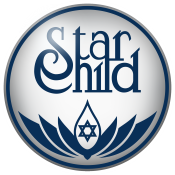
YLANG YLANG ABSOLUTE
Cananga odorata
'Flower of Flowers' is the Malay name for Ylang Ylang, a small tropical tree that is native to the Philippines. The flower's heady, sweet aroma seems particular to cultivated trees; wild ones are much less fragrant. In Asia the flowers have long been valued for their delicious, aphrodisiac perfume, which was extracted by maceration in coconut oil. A much stronger and more concentrated oil is produced by careful steam distillation. However, there are huge differences in the quality of the yields. The best oil is that from the first distillation. In Southeast Asia the flowers are spread on the wedding bed for extra special scentuous excitement. The scent also relaxes and calms fear and anxieties. Ylang Ylang oil is often used as an ingredient for aphrodisiac incense blends. However, too much of a good thing can be- well, just too much. Excessive use of Ylang Ylang can cause headaches and nausea.
Traditional
In aromatherapy Ylang Ylang is mostly used for its psychological effect, helping to overcome negative feelings, fears and insecurities - especially in women with regards to their sexuality. It can be used for frigidity and impotence or simply as an erotic aphrodisiac massage or bath oil. It slows the heart rate and can calm palpitations and lower high blood pressure. It can help with insomnia, especially where this is due to anxiety. In aromatherapy skin care it can be used for all skin types, but helps with irritated and oily skin. It is also used in hair care products.
Magical
Ylang Ylang is used for love charms and perfumes to attract the opposite sex (usually for women). It dispels fear and apprehension and can help gaining a sense of self-confidence. It is deeply sensual and erotic and is an ideal oil for tantric rituals and sex magic. It can also be used for dispelling negative emotions such as jealousy, frustration, anger and insecurity that prevent one from moving on.
Scent
An intensely heady, floral, sweet, slightly balsamic scent. Blends well with Vetivert, Jasmine, Mimosa, Galbanum, Bergamot, Cinnamon, Rose, Benzoin, Tuberose and Amyris.
Synonyms
Cananga tree
Country of origin
Comoros
